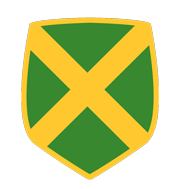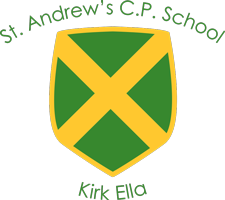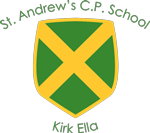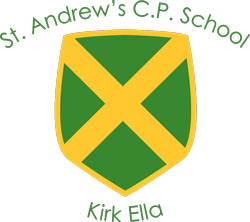At Kirk Ella St Andrew’s Primary School, we follow the JIGSAW approach to teaching PSHE, which includes everything needed for us to cover the curriculum in line with the following Government guidance that all schools must provide a curriculum that is broadly based, balanced and meets the needs of all pupils.
The Education Act 2002 and the Academies Act 2010, states that a PSHE curriculum should:
- Promote the spiritual, moral, cultural, mental and physical development of pupils at the school and of society.
- Prepare pupils at the school for the opportunities, responsibilities and experiences of later life.
We aim to provide our pupils with the knowledge, understanding, attitudes, values and skills they need in order to reach their potential as individuals and within the community. Pupils are encouraged to take part in a wide range of activities and experiences across and beyond the curriculum, contributing fully to the life of their school and communities. In doing so they learn to recognise their own worth, work well with others and become increasingly responsible for their own learning. They reflect on their experiences and understand how they are developing personally and socially, tackling many of the spiritual, moral, social and cultural issues that are part of growing up.
They learn to understand and respect diversity so that they can go on to form effective, fulfilling relationships that are an essential part of life and learning.
We hope to support the development of the skills, attitudes, values and behaviour, which enable pupils to:
- Have a love for learning.
- Be independent in their thinking.
- Show respect and care for others and value themselves!
- Be confident and responsible members of the community.
- Develop excellent life skills.
- Develop resilience.
- Be ready to take on new challenges.
- Establish a good work ethic.
- Build happy memories and a feeling of pride.
Teaching is underpinned by the belief that if attention is paid to supporting children’s personal development in a structured and developmentally appropriate way, this will not only improve their capacity to learn (across the curriculum) but will ultimately improve their life chances. The same 6 topics are covered each year:
Being Me In My World covers a wide range of topics, including a sense of belonging, welcoming others and being part of a school community, a wider community, and a global community; it also looks at children’s rights and responsibilities, working and socialising with others, and pupil voice.
Celebrating Difference focuses on similarities and differences and teaches about diversity, such as disability, racism, power, friendships, and conflict; children learn to accept everyone’s right to ‘difference’, and most year groups explore the concept of ‘normal’; bullying – what it is and what it isn’t, including cyber and homophobic bullying – is an important aspect of this Puzzle.
Dreams and Goals aims to help children think about their hopes and dreams, their goals for success, what personal strengths are, and how to overcome challenges, via team work skills and tasks. There is also a focus on enterprise and fundraising. Children learn about experiencing and managing feelings of pride, ambition, disappointment, success; and they get to share their aspirations, the dreams and goals of others in different cultures/countries, and their dreams for the world.
Healthy Me covers two main areas of health: Emotional health (relaxation, being safe, friendships, mental health skills, body image, relationships with food, managing stress) and Physical health (eating a balanced diet, physical activity, rest and relaxation, keeping clean, drugs and alcohol, being safe, first aid) in order for children to learn that health is a very broad topic.
Relationships has a wide focus, looking at diverse topics such as families, friendships, pets and animals, and love and loss. A vital part of this Puzzle is about safeguarding and keeping children safe; this links to cyber safety and social networking, as well as attraction and assertiveness; children learn how to deal with conflict, their own strengths and self-esteem. They have the chance to explore roles and responsibilities in families and look at stereotypes. All Jigsaw lessons are delivered in an age- and stage-appropriate way so that they meet children’s needs.
Changing Me deals with change of many types, from growing from young to old, becoming a teenager, assertiveness, self-respect and safeguarding. Self and body image, puberty, attraction and accepting change are diverse subjects for children to explore. Each year group thinks about looking ahead, moving year groups or the transition to secondary school. Life cycles and how babies are made and grow are treated sensitively and are designed to meet children’s needs. All year groups learn about how people and bodies change. This Puzzle links with the Science curriculum when teaching children about life cycles, babies and puberty.
Within each piece children will:
- Improve their social skills to better enable collaborative learning(Connect us)
- Relax their bodies and calm their minds to prepare them for learning (Calm me)
- Help the brain to focus on specific learning intentions (Open my mind)
- Initiate new learning(Tell me or show me)
- Participate in learning activities to reinforce the new learning (Let me learn)
- Reflect on their learning and personal development (Help me reflect)
Jigsaw is a progressive, developmental and comprehensive scheme of work. It is designed as a whole school approach, and every year group studies the same Puzzle at the same time, allowing for whole school themes to be shared and celebrated by the whole school. Topics are introduced from EYFS and are returned to consistently and developmentally throughout the scheme, in an age- and stage-appropriate way.
By using a whole-school approach such as Jigsaw, all the children at Kirk Ella St Andrew’s Primary School will, over time, learn skills at different levels around the same area which will see them form stronger, more positive relationships with each other, both socially and with themselves. Their knowledge and skills in mindfulness will have increased and some will be able to relay situations where they may have been able to use these skills in their lives as a tool to overcome issues.
The emphasis on emotional literacy which has, before now, been the domain of our school ELSA practitioners who works with the more vulnerable children at times of need, opened up learning on how to identify and handle the complicated knot of emotions that all children experience as they grow up. A rise in resilience should be evident in the classroom and the playground as children learn the value of perseverance and how to achieve it in a fast-moving modern world. Providing all children with a trusted adult and safe place to learn and talk about mental and physical health will enable our pupils to begin their journey into understanding their thoughts and emotions, which some will not otherwise experience, which is a vital part of our PSHE curriculum.
The impact of our PSHE provision will be:
Our pupils leave with a confident image of themselves as valued people who are better equipped to manage situations that arise in their lives, both socially and personally.
- an understanding of safeguarding and internet safety allowing them to deal with the constant pressures of social media that confront them today.
- that they will move forward into the world as healthy, happy, confident young people who do not shy away from issues affecting their lives but know how best to manage them either themselves or who to turn to in order to seek help.
- the knowledge, understanding, attitudes, values and skills they need in order to reach their potential.
- to understand and respect diversity so that they can go on to form effective, fulfilling relationships that are an essential part of life and learning.
- they will be proud to have learned at Kirk Ella St. Andrew’s School.



